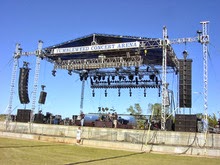Preparing for your wedding is one of the most exciting times you will share together as a couple. Unfortunately, it is also one of the more stressful times in a young couples life together.
Planning for the ceremony, inviting guests, choosing a best man, picking ushers and brides maids etc! The list of things to do seems never ending. In addition to all of the personal decisions to be made, you need to select a venue, hire a caterer, hire a florist, decorate! it’s another seemingly endless list. But with the help of a professional wedding planner, you can eliminate much of the stress that accompanies planning a wedding.
But how do you know the wedding planner you choose will be able to fully meet your expectations?
The following tips will help make choosing the right wedding planner a little easier, and will help ensure that you find the wedding coordinator that can offer the best service.
Weddings Begin With Choices of course all weddings bring a flurry of choices, and certain decisions have to be made early. When considering a professional wedding planner, the first choice is what type of service you need. Full service wedding planners are ready to handle every detail of your wedding and reception, including hiring a venue, decorating, contracting with florists and caterers, and generally looking after every detail of your big day.
Many wedding planners also offer partial services, or day of coordination. These services are designed to help couples find an appropriate venue, and contract with the various vendors that will be needed for the wedding. Partial services can save couples a little money, but by their nature still leave most of the heavy work to the bride and groom. In the long run, a full service wedding planner can save both time and money, and can certainly lessen the stress load.
Interviewing Your Wedding Planner:
Before choosing any wedding coordinator, you’ll want to set up some interviews. Not all wedding planners are created equal, so give yourself some time to speak with a few different coordinators and compare costs and services. The first question to ask any prospective wedding planner, is where they were trained in the profession. Not all wedding planners have had professional training, and you want to be sure you choose someone who is well trained and experienced in their field. You will also want to ask how long they have been working in the industry, and what types of weddings they have organized in the past.
A good wedding planner should be able to provide a work history that gives you confidence in their skills, and should also be able to provide recommendations from past satisfied clients.
As you interview potential wedding planners, be sure to ask what level of service they provide. A good wedding planner should be able to handle all of the details of your wedding, from venue to décor, to catering etc.
Successful wedding planners should be able to take your initial ideas, and enhance them with concepts of their own. They should be quick with suggestions to make your wedding more beautiful, more personal, and all that you both dreamed it could be.
Total Cost and Your Budget:
While consulting with your wedding planner, be sure they understand all of your budgetary restrictions. Being able to work within a set budget is an important part of being a wedding planner, and they should be able to make suggestions that can save you money while providing first class service on the day. A good wedding coordinator will have contacts with a variety of vendors and caterers so that they can provide the best service at the best price for all of their clients.
Finally, ask about what will be covered in the total cost. Will the vendor’s and caterer’s fees be included in the total cost, or will they be paid separately. This applies to any support staff required prior to, and on the day of the wedding as well. Confirm when payment is due, and what forms of payment will be accepted.
Hiring a wedding planner can help to take much of the stress out of planning your wedding. When choosing a wedding planner, look for someone that understands what you want on your wedding day. Choose someone you are comfortable with, who will work closely with you and who is committed to bringing your dream wedding to life.





















